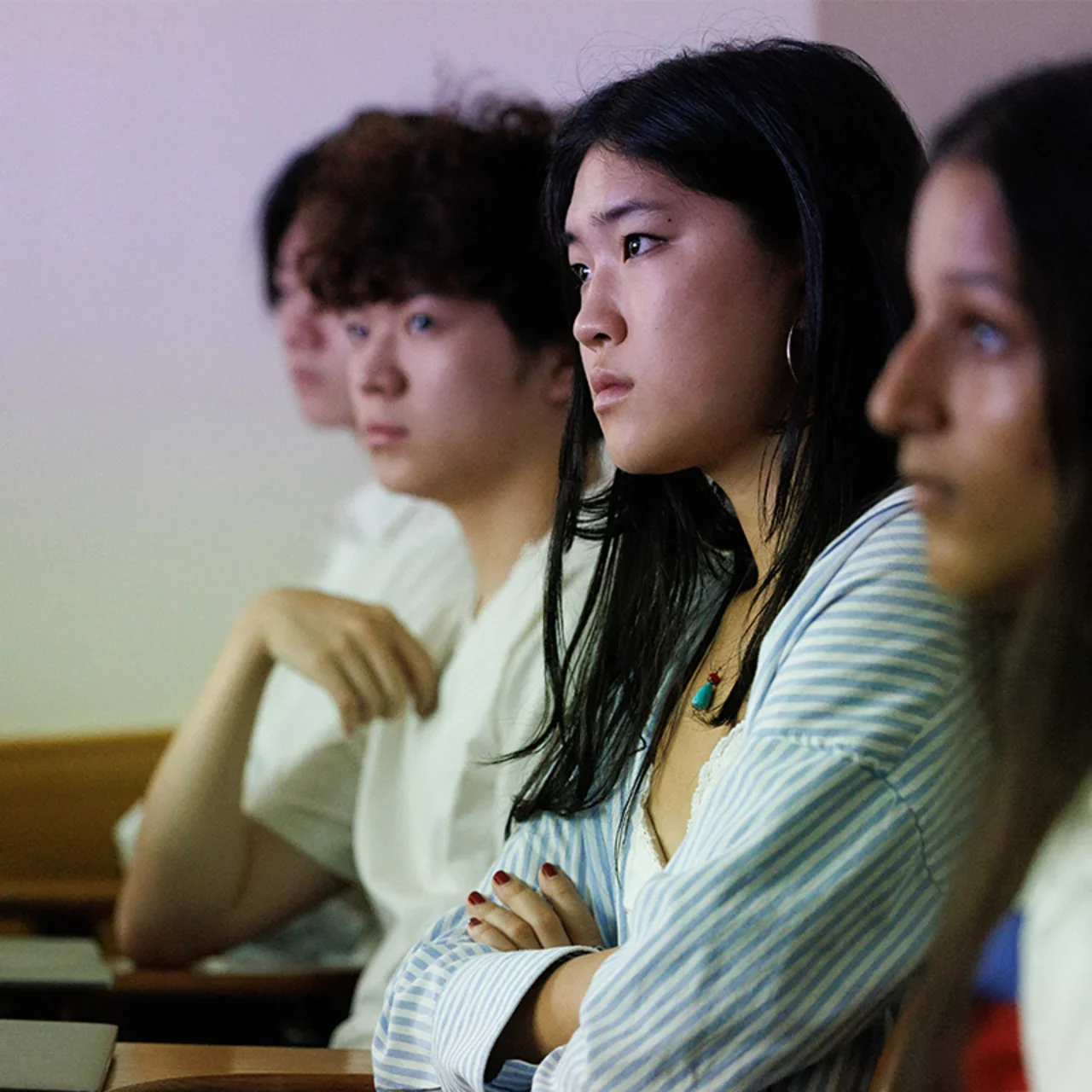
Academic Year Weekend
Seize the weekend.
Fall 2025: September 19–December 7, 2025
Spring 2026: January 23–March 29, 2026
Academic Year Weekend
Through Columbia's online interactive learning platform, students across the globe can engage with one another through rigorous curricular instruction, inclusive student life activities, and informative college success events.
Academics
I enjoyed the new knowledge I found about myself, my course, college life, academics, health, and wellness throughout the program. I feel my knowledge has increased significantly and I enjoyed the interactivity of the program that makes every student feel included."
– Madeline A. | El Paso, TX

Courses

World-Class Instructors
Credentials
Upon successful completion, students will earn a Columbia University Certification of Participation and an evaluation letter reflecting their performance in the program to further set them apart in the college application process.
The Online Experience
For ten weekends, 9–12 grade students in the Academic Year Weekend Program will study their choice of over 20 courses in an engaging and lively virtual classroom. Before morning classes and during break, they can connect with peers from all over the world in activities designed to help them to be as prepared as possible for the college experience.
Special opportunities create an even more enriching online experience. Students can participate in virtual clubs, for example, or get to know a core group of peers and receive mentoring support from a Student Life Intern by signing up for a Digital Community Group.

Learning Online

College Preparation
Weekend Schedule
All courses during the Academic Year Weekend Program are offered on Saturdays or Sundays, during the morning, afternoon or evening. Students can choose up to four courses per term to pursue over ten weekends. We recommend that students take between one and three courses per term.
Classes are two hours long, often with a 10-minute break at the halfway point. Typically, a morning option (10:00 a.m.–12:00 p.m. ET) and afternoon option (1:00 p.m.–3:00 p.m. ET) are available Saturdays or Sundays, with additional offerings on Saturday evenings (8:00 p.m.–10:00 p.m. ET). See individual courses for specific meeting times.
Activities and Events
Prior to the start of morning classes and during the one-hour break between morning and afternoon classes, students can eat, do homework, and participate in a variety of organized activities. Events include college prep and career exploration workshops, leadership seminars, and other topics of interest.
Program Costs
Program costs are subject to Board of Trustee approval and may change.
Academic Year Weekend: $2,810 per session (single course registration)
The amount above includes the fee for the course itself, along with activity, health services, and technology fees. Academic Year Weekend students are permitted to take more than one course. Each additional course costs $2,700.
Students pay a $500 non-refundable deposit to secure a place in the program. The deposit is credited toward the program cost—it is not an additional fee. Not included are the application fee ($80). Students are advised to budget at least $50 toward course materials, such as textbooks and supplies.